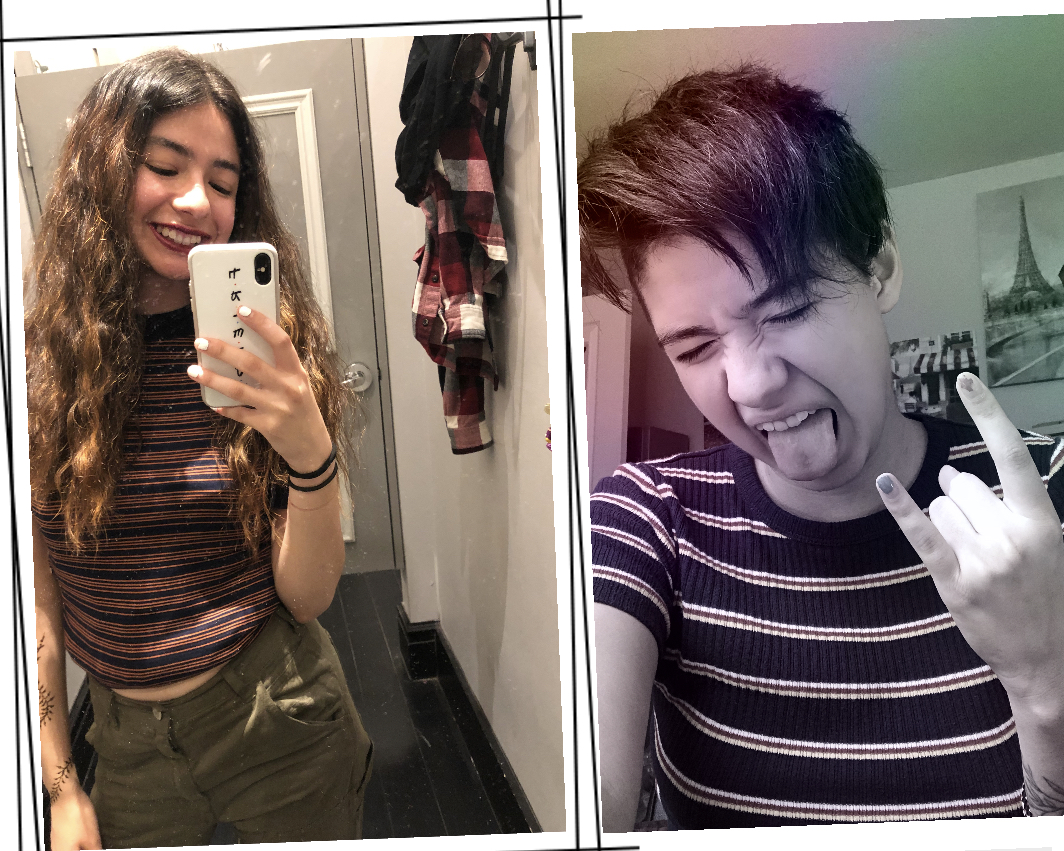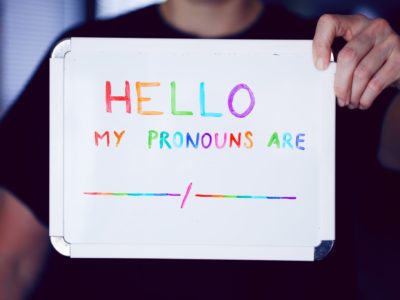I’m going to cut to the chase. Biological assigned sex and gender are not the same thing. The spectrum of gender identities doesn’t exclusively mean one can only be feminine or masculine.
The possibilities to branch out from what society has deemed “normative” are endless for anyone—and I’m finally realizing that includes me.

Identifying as Latinx, my culture played a big role in the stereotypes that my parents followed. I came out of the womb as a female and my parents were ecstatic. They always wanted a little girl they could spoil and my nicknames ranged from “chata” to “princessa” to every other girlish name you could think of.
Big feminine stereotypes revolved around the actions my mother took such as always braiding my hair and making me wear pink. My father viewed me as a daughter who needed to be spoiled with every materialistic item possible and treated me with carefulness and fragility.
I was taught to sit a certain way and to cater to those around me, like a “woman” should. The terms associated with females constantly surrounded every aspect of my childhood life. My surrounding environment had to match one of a girl. They bought me Barbies, I watched Dora the Explorer and my room was Disney Princess themed.
It wasn’t until I cognitively registered the differences between my older brother, Omar, and myself that I started to figure out that there was a reason why I usually didn’t feel comfortable with the femininity that my parents were raising within me.
Omar had Hot Wheels and Star Wars action figures. He loved to play video games like GTA, Spiderman and Metal Gear Solid on the PlayStation 2. He was raised to be masculine because he was biologically assigned male. I would always try to play video games with him or steal the PlayStation 2. I never wanted to leave his room because I loved bothering him. Ultimately, I felt more comfortable being in there than in my own room.
I eventually got a PlayStation 2 and that was the best day.
My discoveries of different types of toys and games felt confusing. Being raised feminine wasn’t the absolute worst, but I knew there was something off and I found myself more every time I was around Omar. There came a point where I played with both “male” and “female” toys and I was happy that I had these options. Again, my identity was still blurry—I didn’t feel 100% like a female.
My personality simply didn’t align with solely that identity and I didn’t know how to express this with anyone, especially as a child raised within my culture.

In middle school, I discovered the term “gender fluid” and it honestly resonated with me. I felt like I was constantly going back and forth within myself—with my feelings and thoughts about how I identified.
It didn’t help that I had a wannabe emo phase and I started dressing more “boyish.” I also had a best friend who helped me realize these things and I am forever grateful for them. I slowly realized that being different was valid and despite not being 100% sure about what I identify as, it was a great start. Middle school graduation hit and I was forced to wear a pink dress. Truly the pinnacle of my embarrassment.
Flash forward to high school and now finishing college, I’m able to express myself more easily. I made choices that helped me identify myself, from wearing different clothing to experimenting with different nicknames and pronouns. As I’ve grown older and experienced life outside of my past, I have been able to fully grow fiercely into myself.
I am proud to say that I identify as non-binary, with pronouns “she/they,” and am changing my legal name from “Gisselle Leslie Reyes” to “Gisselle Medina.”

My identity seems clear now and I am brave enough to continue a life where I can feel comfortable and safe within myself and have incredible support from those around me.



















